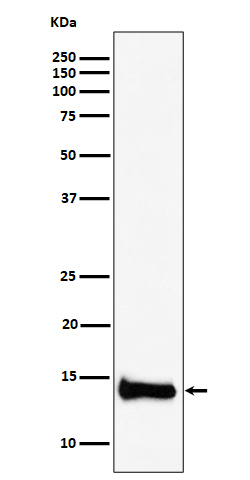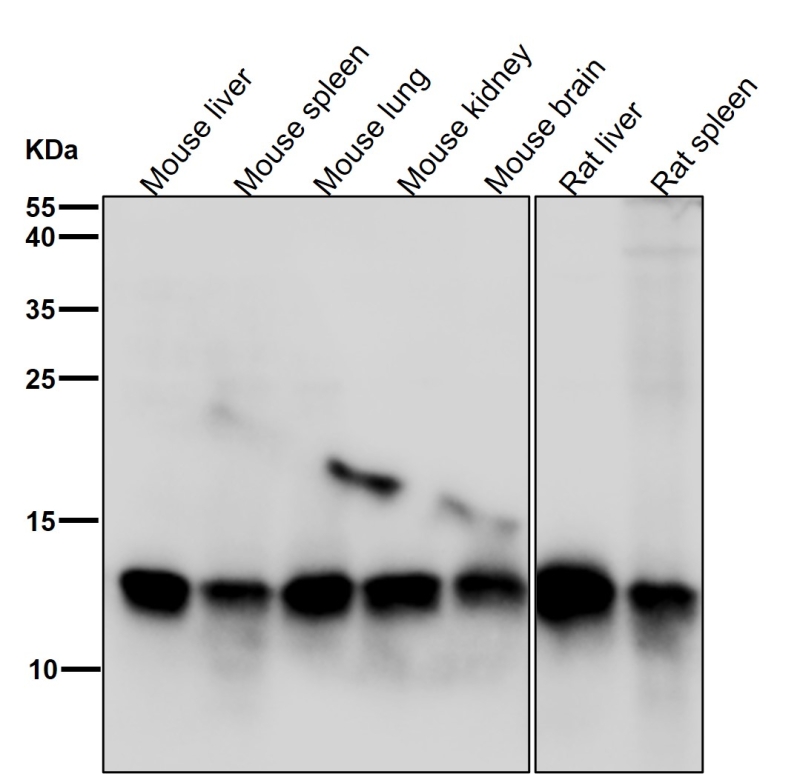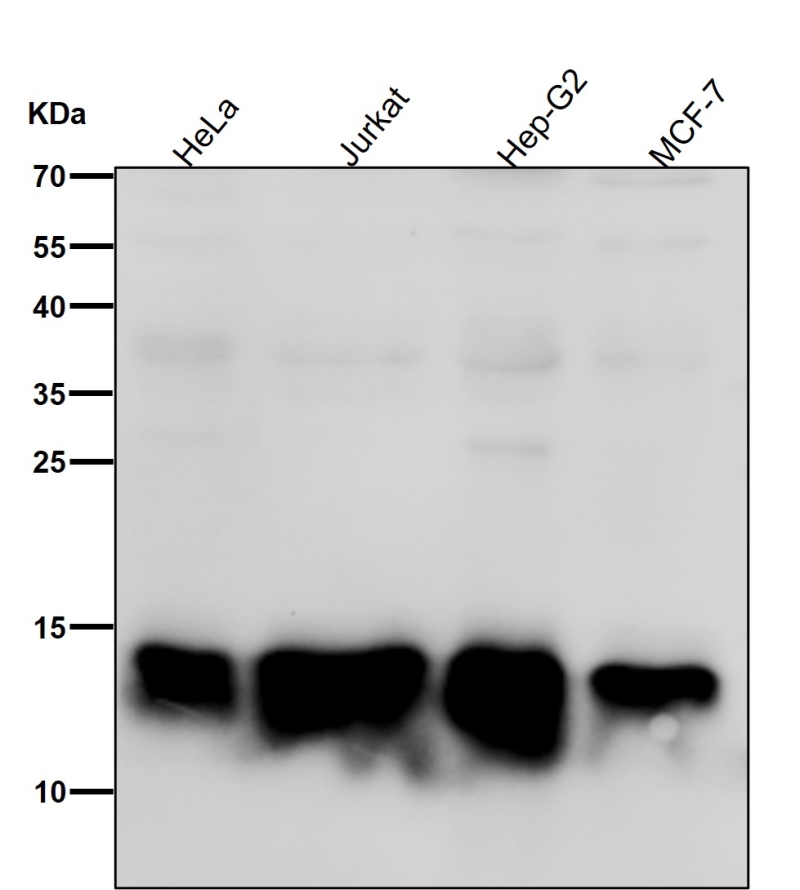


| WB | 咨询技术 | Human,Mouse,Rat |
| IF | 咨询技术 | Human,Mouse,Rat |
| IHC | IHC:1/100-1/200;IHF:1/50-1/200 | Human,Mouse,Rat |
| ICC | 1/50-1/200 | Human,Mouse,Rat |
| FCM | 咨询技术 | Human,Mouse,Rat |
| Elisa | 咨询技术 | Human,Mouse,Rat |
| Aliases | EPVH; hEPVH; hPar14; hPar17; Par14; Par17; PIN4;;PIN4 |
| WB Predicted band size | 14 kDa |
| Host/Isotype | Rabbit IgG |
| Antibody Type | Primary antibody |
| Storage | Store at 4°C short term. Aliquot and store at -20°C long term. Avoid freeze/thaw cycles. |
| Species Reactivity | Human,Mouse,Rat |
| Immunogen | A synthesized peptide derived from human PIN4 |
| Formulation | Purified antibody in PBS with 0.05% sodium azide,0.05% BSA and 50% glycerol. |
+ +
以下是3篇与PIN4抗体相关的文献摘要信息(注:PIN4相关研究主要集中在植物发育领域,以拟南芥为模式生物):
---
1. **文献名称**:*Asymmetric auxin distribution establishes a developmental pattern in Arabidopsis*
**作者**:Friml, J., et al.
**摘要**:本研究利用PIN4抗体进行免疫定位,发现拟南芥胚胎发育过程中PIN4蛋白介导的生长素极性运输,调控根分生组织的形成。抗体实验表明PIN4在基部胚胎细胞中特异性表达,影响生长素梯度建立。
2. **文献名称**:*Dynamic PIN1 auxin efflux carrier phosphorylation at the plasma membrane*
**作者**:Michniewicz, M., et al.
**摘要**:通过PIN家族抗体(包括PIN4)的共聚焦显微分析,揭示了拟南芥根尖细胞中PIN蛋白的磷酸化修饰动态变化,证明PIN4与其他PIN蛋白协同调控生长素再分配以响应环境信号。
3. **文献名称**:*A PINOID-dependent binary switch in apical-basal PIN polar targeting directs auxin efflux*
**作者**:Dhonukshe, P., et al.
**摘要**:利用PIN4抗体的免疫印迹和细胞成像技术,证明PINOID激酶通过调控PIN4蛋白的膜极性定位参与胚胎发育,影响生长素运输路径的时空特异性。
---
注:若需具体实验应用(如Western blot/免疫组化),可进一步提供文献DOI或补充关键词。
The PIN4 antibody targets the Protein Inhibitor of Activated STAT4 (PIN4), also known as DCAF7 or HCA66. a regulatory protein involved in diverse cellular processes. Initially identified as an interactor of the JAK-STAT signaling pathway, PIN4 modulates transcription by binding to activated STAT4. influencing immune responses and cytokine signaling. Beyond STAT regulation, PIN4 acts as an adaptor in ubiquitination pathways, linking E3 ligases to substrates for proteasomal degradation. It also plays roles in cell cycle control, apoptosis, and stress responses by interacting with kinases like DYRK1A and HIPK2.
PIN4 antibodies are widely used in research to study its expression, localization, and interactions in diseases. Altered PIN4 levels are associated with cancers, neurodegenerative disorders (e.g., Alzheimer’s), and developmental defects. In cancer, PIN4 may act as a tumor suppressor or promoter, depending on context, making its antibodies valuable for mechanistic studies. These antibodies are applied in techniques like Western blotting, immunohistochemistry, and immunofluorescence.
Commercial PIN4 antibodies are typically raised against conserved epitopes, ensuring cross-reactivity in human, mouse, and rat models. Validation includes knockout cell lines or siRNA knockdowns to confirm specificity. Despite its multifaceted roles, PIN4's exact mechanisms remain under investigation, highlighting the antibody's importance in elucidating its biological and pathological significance.
×